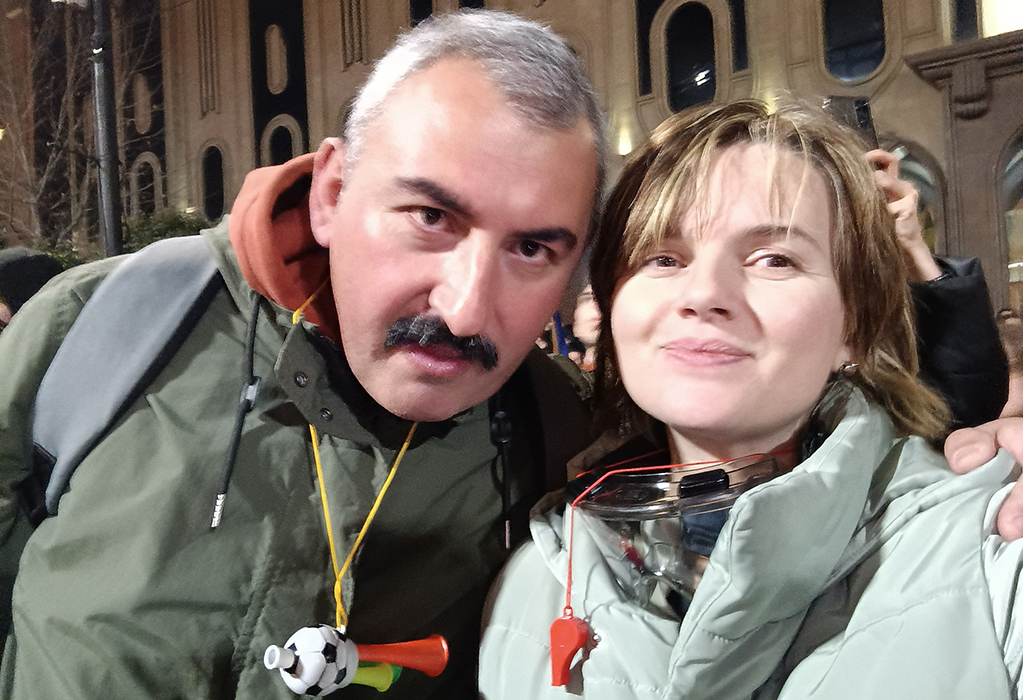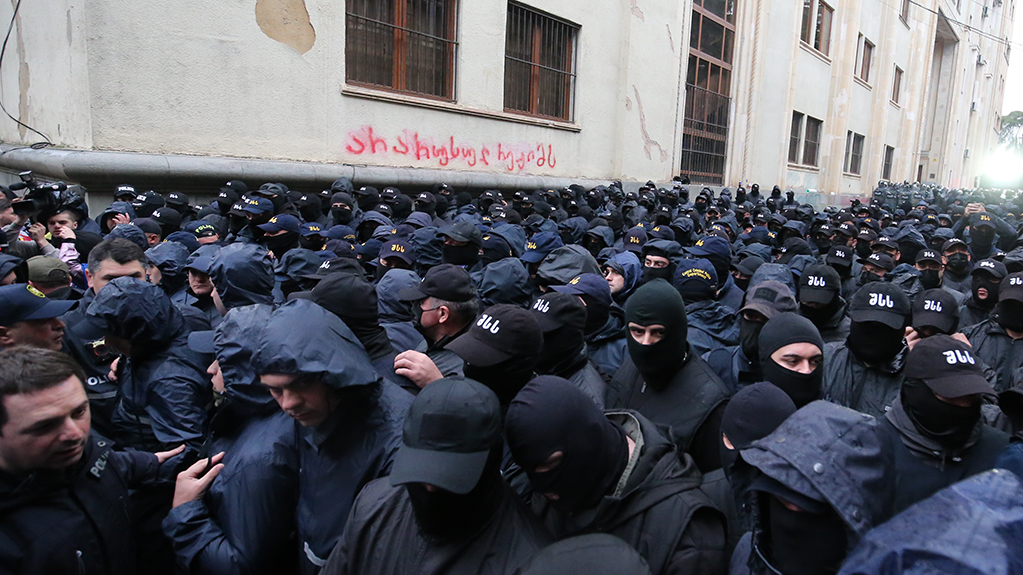"The calls don't stop. They have been calling me, Zaza, and my 67-year-old mother for two days. They address us by name, threaten us, swear at us, and say unimaginable things.
News
In the case of my mother, they said they took Tkemali out of Van and asked to what address they should deliver it. Us adults find this situation amusing, but the children cried a lot. (it affects them.) What kind of "nationals", people? If they remain in power come October, what kind of reality will we wake up to?
We have to protect our beautiful country with all our might!" wrote Keto Ninidze, a resident of Samegrelo. She is the wife of Zaza Gagua, director of the Martvil Natural Monuments Administration. Both openly criticize the Agents Law and participate in protests.
"They called me, my wife, and my 67-year-old mother-in-law at half-past one in the morning, with five-minute intervals. They cursed us and scared my children. For those who support this, God bless you in this truth. Those who do this will go unnoticed, but tomorrow they will come for you too. I have served this country all my conscious life, and this is the answer I receive. The tears of my children do not bode well for anyone. Georgia will definitely be Europe," says Zaza Gagua.

Activist Ana Subeliani received the same call on June 2. An unknown person told Ana that they had ordered strawberries for her:
"An unknown number was calling me on Viber. I didn't answer at first, but after several calls, I picked up, expecting to hear swearing. Suddenly, a guy started talking to me in a normal voice. 'Are you Ana?' he asked.
'I came all the way from Khobi and brought strawberries for you. Giorgi Tofuria transferred this amount to me, he gave me your number, and I have in the car with the 150 GEL worth of strawberries for you,' he told me.
I said, 'Send me that person's number or send me the enrollment screen.' After a few minutes, he called me again. 'How do you think I will let a stranger come to me at midnight?' I asked. After that, he started swearing, as usual."
At three o'clock in the morning, an unknown person contacted Vika Bukia, a journalist from TV First. "It was exactly 03:15. He knocked on my mother's door. There was me, Masho, and my mother. A guy in a hoodie was standing at the door and said to me, 'Girl, my head hurts. Open the door and give me some Citramon.' 'What time is it? What Citramon?' I said. 'Why are you quarreling with me? I am asking you for medicine.' Of course, I didn't open the door. Two minutes later, the phone rang, and he told me that I would be punished for usury. Then he cursed at me."
Threatening phone calls have been made to citizens protesting the Russian Law since May 7. Unknown individuals are calling from numbers in both Georgia and foreign countries, including Azerbaijan, Ukraine, and Mexico, attempting to intimidate protest participants and their family members. In many cases, they are contacted several times a day over several days, insulted, and addressed with degrading terminology. They are asked why they don't support the Agents Law and are threatened with physical punishment if they and their family members don't stop protesting.
In some cases, unknown individuals possess phone numbers, names, surnames, places of work, residential addresses, and personal information related to the family members and relatives of those they target. Children are also contacted with threatening calls.
Most of the Georgian phone numbers used to call opponents of the Russian Law are inactive and not registered in the Magticom, Silknet, and Selfie Mobile networks.
The Personal Data Protection Service found that telephone calls to citizens are made using so-called Caller ID Spoofing. The caller uses a real number through a special infrastructure, during which the real number is replaced by a nonexistent/stolen number. As a result, the addressee is contacted in such a way that a nonexistent/misappropriated telephone number appears as the initiator of the call, and the real number of the caller is unknown to the electronic communication companies.
Considering the frequency and scale of the phone calls, the Personal Data Protection Service concluded that this process is premeditated and organized. For almost 10 days, the service has forwarded all the statements received on this matter to the prosecutor's office for a response, but to no avail.
Along with the telephone terror, Georgian Dream has launched a campaign of hatred and violence against investigative journalists, public organizations, and representatives of opposition parties. On the night of May 31, insulting, defamatory, and threatening inscriptions were once again made on their residences and offices. Dimitri Samkharadze, a member of parliament and regional secretary of the ruling party Georgian Dream, took responsibility for this campaign of violence. None of the cases, including damage to property, significant harm to owners, or assaults, have been investigated.
The Chairman of the Parliament, Shalva Papuashvili, signed the Russian Law on Agents today. The law was published in the Legislative Gazette and will be implemented in August.















